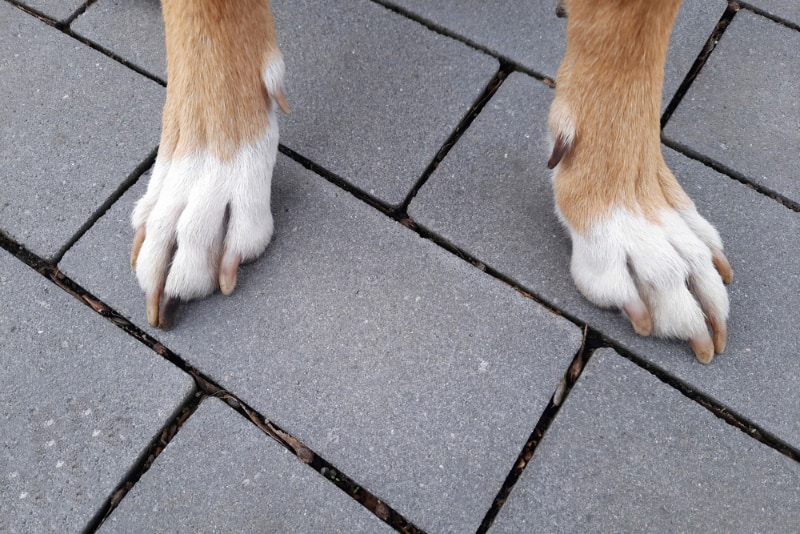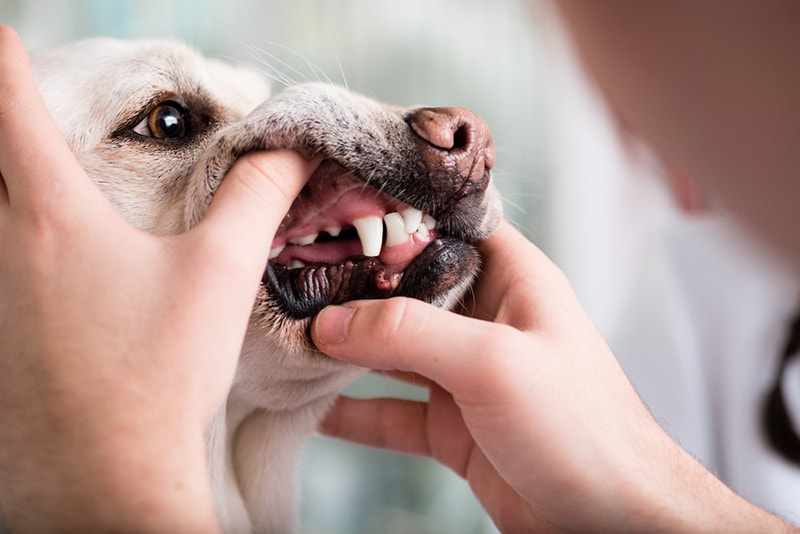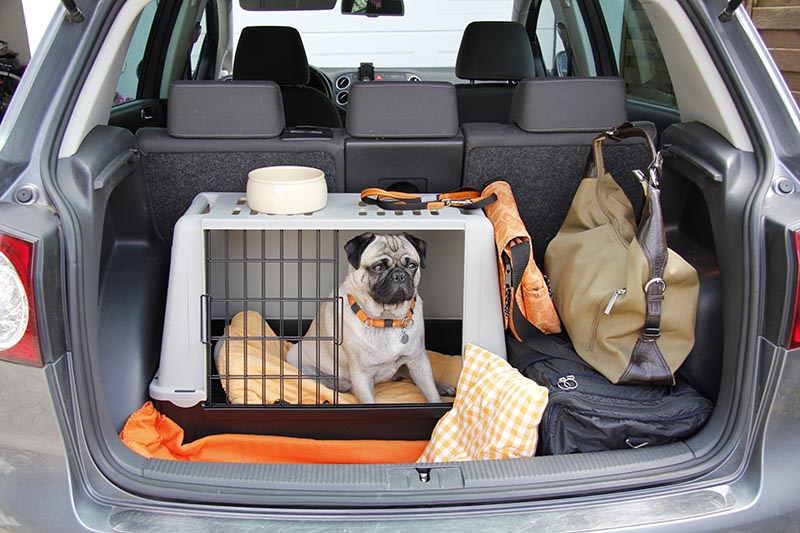My Dog Ate a Nicotine Pouch: Our Vet Explains What To Do
Updated on
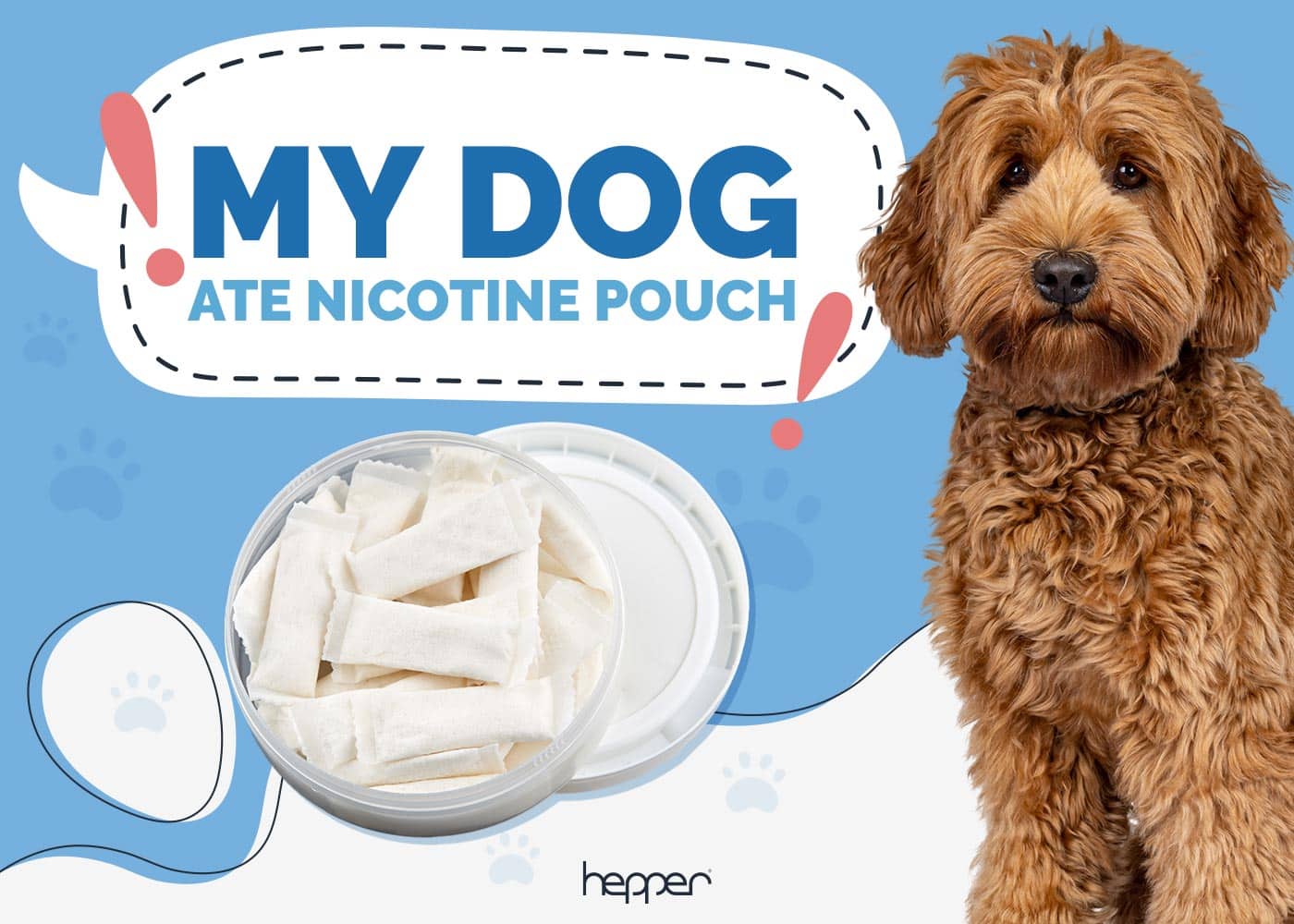
Click to Skip Ahead
Nicotine is toxic to dogs. Therefore, you must be careful where you leave ashtrays, cigarette packs, or nicotine pouches. The first signs that your pet can show after eating products containing nicotine are drooling, vomiting, diarrhea, agitation followed by lethargy, tremors, rapid breathing, and muscle weakness.
If your dog ate a nicotine pouch, you must contact your vet immediately. Nicotine is rapidly absorbed and its effects can last for 1 or 2 hours up to 24 hours. Clinical signs can occur when dogs ingest doses as low as 1 milligram per kilogram of body weight. If your dog ingested between 9 and 12 milligrams of nicotine per kilogram, they could be at risk of death. Your veterinarian will take prompt action, and they may recommend to induce vomiting and administer activated charcoal.
In this article, learn more about what can happen if your dog ingests a nicotine pouch, the clinical signs, and what you could do to help them.
What Is a Nicotine Pouch?
A nicotine pouch is a modern oral nicotine product. It contains nicotine (derived from tobacco or synthetic) among other ingredients and is sold as a good substitute for a classic cigarette because it does not contain tobacco.
If your dog accidentally ingests one of these nicotine pouches, it is vital to know how many milligrams of nicotine are in a pouch in order to give the veterinarian this information. In dogs, nicotine poisoning can start from doses of 1 mg of nicotine per kilogram. The lethal dose of nicotine in dogs starts at 9 milligrams per kilogram. You must keep this fact in mind if you have a small dog that has consumed a nicotine pouch with a high concentration of nicotine.
- Extra light — very low nicotine content, 1–3 mg/pouch
- Normal — low nicotine content, 3–7 mg/pouch
- Strong — medium nicotine content, 7–11 mg/pouch
- Extra strong — strong nicotine content, over 11 mg/pouch
What Are the Clinical Signs of Nicotine Poisoning in Dogs?
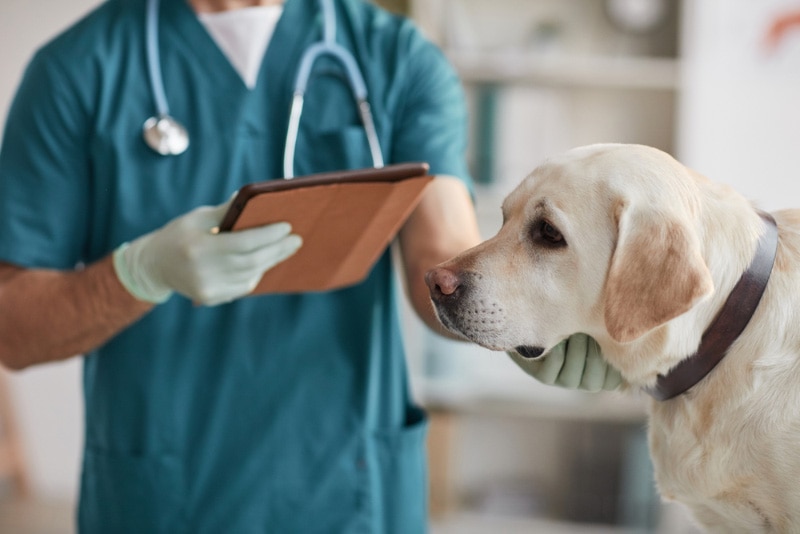
If your dog has ingested nicotine, expect to see clinical signs rapidly, often within 1 hour. During this time, your dog may develop digestive, neurological, cardiac, and breathing problems. The severity of the clinical signs will depend on the amount of nicotine ingested and the size of your dog. Small dogs will show more obvious clinical signs than large dogs with the same concentration of ingested nicotine.
Make sure you contact your veterinarian as soon as you notice your dog ate nicotine. If your pet develops nicotine poisoning after eating a nicotine pouch, they may show the following clinical signs within 15 to 90 minutes.
- Vomiting
- Diarrhea
- Hypersalivation
- Difficulty breathing (labored breathing)
- Muscle weakness
- Collapse
- Dilated pupils
- Tachycardia (rapid heartbeats)
- Tremors
- Seizures or collapse
- Wobbly walking
- Hyperactivity followed by lethargy
It is recommended to contact the veterinarian even if your dog vomits their stomach content (including the swallowed nicotine pouch) for a proper evaluation. The veterinarian will assess your dog (heart rate, blood pressure, and neurological status), and they may keep them in the hospital for monitoring or treatment to ensure that your pet is out of any danger.
How Is Nicotine Poisoning in Dogs Treated?
The diagnosis of nicotine poisoning is based on identifying the situations in which your dog has been exposed to or has eaten products containing nicotine and shows specific clinical signs. Without treatment, severe nicotine poisoning can cause cardiac arrest. This may happen within hours of ingesting the nicotine.
The treatment of nicotine poisoning in dogs depends on how much nicotine a dog ingested and how much remains unabsorbed in the system. The veterinarian can induce vomiting in the dog if this has not happened already.
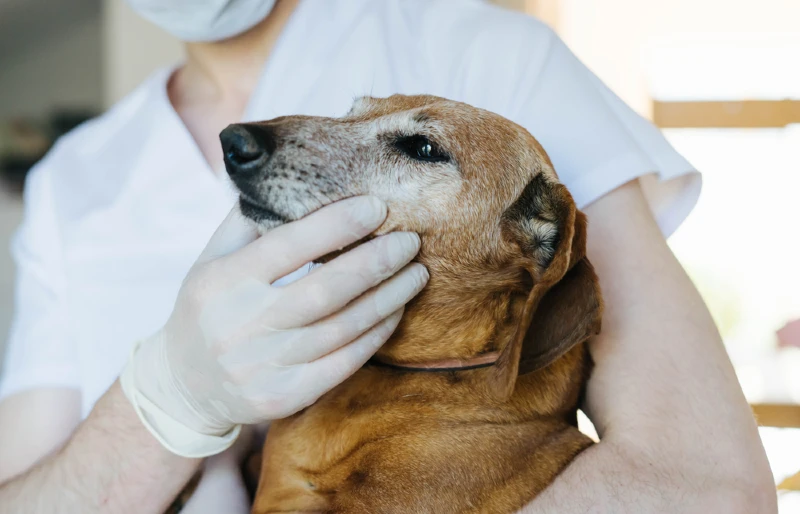
If the induction of vomiting is unsuccessful, the vet may recommend gastric lavage. It is crucial to try to eliminate any nicotine from your dog’s body as soon as possible. Your vet will also administer activated charcoal; this medication will bind to the nicotine in the digestive tract and prevent it from causing further damage.
The vet may also administer IV fluids, oxygen therapy, blood pressure medication, muscle relaxants for tremors, anti-nausea medications for vomiting, and seizure medications, depending on the case. Hospitalizing the dog overnight is usually necessary so the veterinarian can monitor them closely.
A complete recovery in 24–48 hours is expected, depending on the severity of the intoxication.
What to Do if Your Dog Eats a Nicotine Pouch
If you notice that your dog has ingested a nicotine pouch, it is necessary to contact the veterinarian right away. Depending on how many grams of nicotine the pouch had and the weight of your dog, here’s what you should do:
- Contact the veterinarian.
- Follow your vet’s advice. Monitor your pet closely for any clinical signs. If more than 4 hours pass and your dog seems fine, they are probably out of any danger.
- Do not induce vomiting unless recommended by the veterinarian
Once you arrive at the clinic with your dog, the veterinarian will evaluate them from a hemodynamic and vital parameters point of view and if necessary, institute an emergency treatment and hospitalize your pet.
Frequently Asked Questions
Will Nicotine Poisoning in Dogs Go Away on Its Own?
No. You must contact your vet if your dog eats a nicotine pouch. They will assess the severity depending on your dog’s size, the amount of nicotine ingested, and your dog’s clinical signs. Your vet is the medical professional who can create a treatment plan for your dog.
What Happens if a Dog Eats Snus?
If a dog ingests snus, they can become intoxicated with nicotine. In dogs, nicotine poisoning can occur in the first 15–30 minutes after ingestion and can lead to severe digestive and neurological clinical signs, as well as heart and respiratory problems. If you suspect or have seen your dog consuming snus or any other product containing tobacco or nicotine, contact the vet immediately.
Conclusion
Eating nicotine pouches can lead to nicotine poisoning in dogs. A dog can become intoxicated with nicotine when the dose is at least 1 milligram per kilogram and can die at a dose of 9 milligrams of nicotine per kilogram. Clinical signs of nicotine poisoning can occur within 15–30 minutes after ingestion and can include drooling, vomiting, diarrhea, dilated pupils, hyperactivity, lethargy, seizures, changes to heart rate and blood pressure, and cardiac arrest.
It is recommended to contact the veterinarian as soon as you notice that your dog has consumed a nicotine pouch. Also, induce vomiting only if the vet recommends it to make sure you do not do more harm than good. If 4 hours have passed since ingestion and your dog seems fine, there’s a good chance that they are out of any danger.
Featured Image Credit: SeventyFour, Shutterstock





